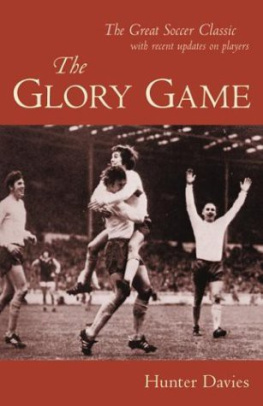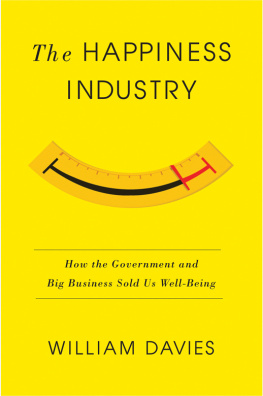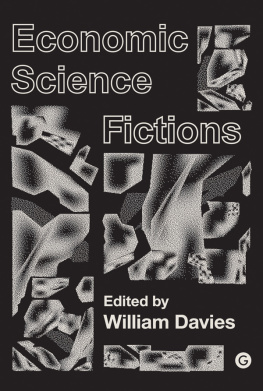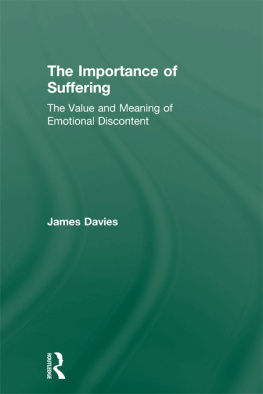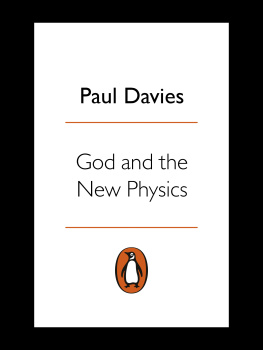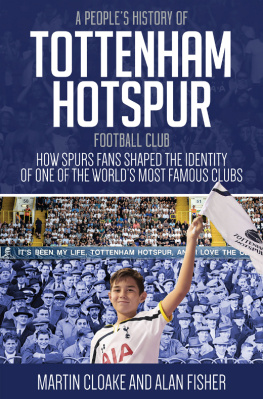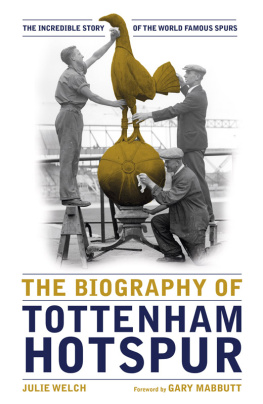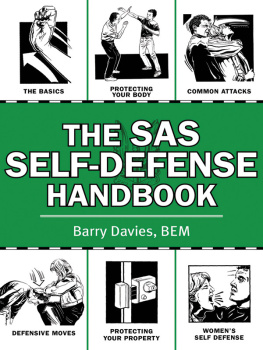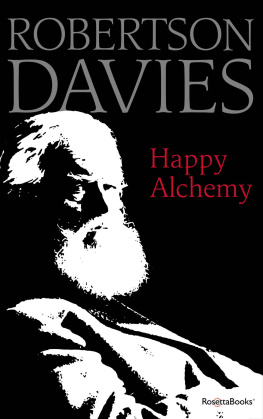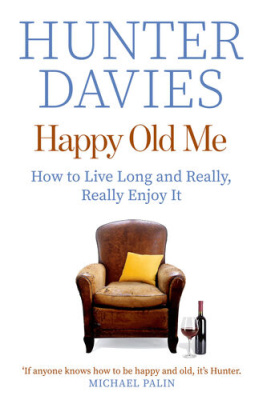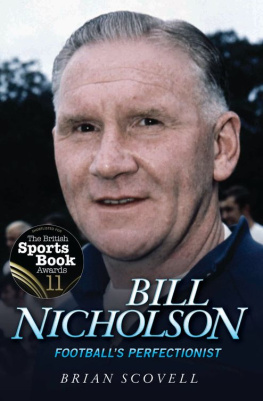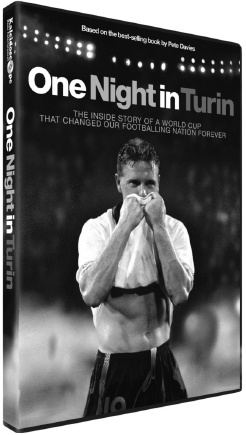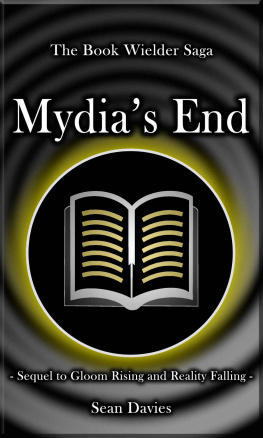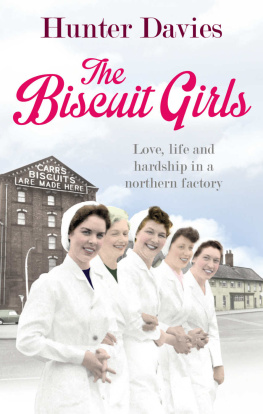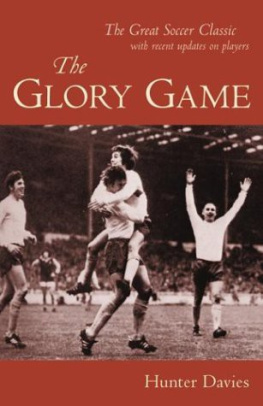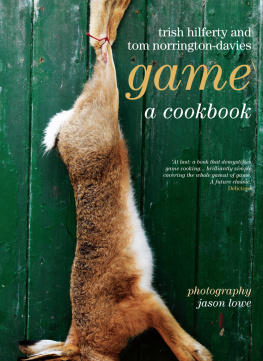TREACHERY
THE NEW EDITION OF THE BRITISH FOOTBALL CLASSIC
Hunter Davies
This eBook is copyright material and must not be copied, reproduced, transferred, distributed, leased, licenced or publicly performed or used in any way except as specifically permitted in writing by the publishers, as allowed under the terms and conditions under which it was purchased or as strictly permitted by applicable copyright law. Any unauthorised distribution or use of this text may be a direct infringement of the authors and publishers rights and those responsible may be liable in law accordingly.
Epub ISBN: 9781780570112
Version 1.0
www.mainstreampublishing.com
Copyright Hunter Davies, 1972
All rights reserved
The moral right of the author has been asserted
MAINSTREAM PUBLISHING COMPANY (EDINBURGH) LTD
7 Albany Street
Edinburgh EH1 3UG
First published 1972
Reprinted with amendments 1990, 1994, 1996 and 1999
ISBN 1 84018 242 3
No part of this book may be reproduced or transmitted in any form or by any means without written permission from the publisher, except by a reviewer who wishes to quote brief passages in connection with a review written for insertion in a newspaper, magazine or broadcast
A catalogue record for this book is available from the British Library
CONTENTS
INTRODUCTION
This is the story of an English football club during the season 197172, a long time ago, in another century, where they did things differently. The money, the merchandising, the television exposure, the players, the clothes, the conditions, the styles, the stadia, everything would appear to have totally changed since this book was first published.
At the time, I worried that it might be seen as only of interest to that half of north London who supported Spurs. At Arsenal and elsewhere, they might refuse to read it. Yet it has been in print constantly since 1972.
In 1972, I went round saying, no, really, it could be about your team, any team today, at the top of its powers just give it a chance. As the years went on, Ive also had to add a warning please ignore the mention of flares, people long gone, dated references you might not understand, and try not to laugh at the piddling wages, modest homes and modest lifestyles.
Why has the book continued to sell so well? I suppose the simple reason is that inside a club, inside a dressing-room, basic things are much the same, despite the externals having changed so drastically. The fears, the tensions, the dramas, the personality clashes, the tedium of training, the problems of motivation, injuries, loss of form, the highs and the lows, new people coming through, old stars beginning to fade, that sort of stuff goes on, and will go on, forever.
The 1972 edition is now a collectors item, if you can find a copy. Ive been asked for it time and time again over the years, not just by Spurs fans, but by bookshops, new and second-hand, all over the world. I have only one copy of the original left, and that is very filthy because my son Jake, then aged eight, used to read and re-read it in bed every night. The whole book is full of very complicated red crosses and ticks. He gave each section and each player a star rating, then hed change his mind, and his rating systems.
I suppose the most correspondence I have had concerns the forty or so pages of appendices I put at the end of the book, all about the players football details, lifestyles and opinions. Im a sucker for any sort of list, and at the end of a book I always bung in all the stuff in note form I havent been able to work into the body of the text. I realised anyway that as I had such intimate access to a group of eighteen or so sportsmen, at the height of their careers, I should take the opportunity to ask them all the cheeky questions Id always wanted to ask. Getting each of them at home, on their own, away from the ridicule of their team-mates, made it fairly easy to put personal questions to them, the sort an outsider would never dare ask otherwise.
I did ask an academic friend, Dr John Carrier of LSE, to help me phrase the questions, as he said I owed it to future research to get the thing done properly. At the time, I rather scoffed. But over the years, I should think not a month has gone by without some student somewhere writing to tell me that he or she is using my material in their own research thesis. What normally happens is that they put my findings against a present-day group of sportsmen, not necessarily footballers, not necessarily in Britain. You can, of course, get degrees in sport these days, at various colleges and universities. Nice to think Ive helped a few PhDs along the way.
In this new edition, I have included some further appendices for anoraks everywhere. As well as the original 1972 surveys of the players, their life and habits, there is a similar survey of the 1985 team and also of the 1997 team, so we now have three lots of surveys to be compared and contrasted. I have also included details of what happened to the 1972 team and what those players are doing today.
Over the years Ive also had, of course, the ordinary fan letters. In the 1980s, I got a letter from Bryan Robson, captain of Manchester United and England, who was still a schoolboy when the book first came out. A friend of mine has told me your book The Glory Game is the best of its kind yet written. If at all possible, could you please let me have a copy? But I wasnt able to help him. I just couldnt find a copy at the time. Morris Keston, that ardent Spurs supporter who was interviewed in the book (see Chapter 18), frequently wanted more copies to give as presents.
Then, in 1985, out of the blue, this terribly good firm in Edinburgh yes, Edinburgh in Scotland said they would like to reprint it, just as it was, but with a new introduction. Why? Well, Cyril Connolly once said that any book which is reprinted more than ten years after publication has become a classic. So I suppose this book must, in its modest little way, be considered some sort of classic. Of its kind.
The most surprising aspect of all, back in 1972, was that we sold foreign editions. This is very unusual with such a book. It was published in Norway, as Kong Football, and in Denmark, as Kong Fodbold. The Scandinavian interest can be explained as they took our Match of the Day live. It was even published in the United States, by St Martins Press, which was the biggest surprise of all, considering that at the time soccer was not being played much in America, and the names of the Spurs players were completely unknown across the Atlantic.
It was also serialised by two London newspapers, at the same time, which was a great help, the Sunday Times and The People. And that was where my problems began. It ended with me getting a threatening letter from a solicitor, the only one Ive had in writing books, from Lord Goodman, our leading legal light of the day, or at least it was from his firm, Goodman Derrick. The Spurs board, so the letter said, wanted the book withdrawn while changes were made.
During the first few months of doing the book, living with the team, both at the training ground and in the dressing-room, I had always expected something to go wrong. This was a bit more than I had bargained for.
It all began when I approached the club, as a book writer, not as a sports journalist, saying I wanted to observe them over a season. I had been a Spurs fan since 1960 when Id arrived in London, so naturally I wanted to devote my time to a team I had always enjoyed watching. But in terms of a book, any other First Division team would have done. The experts I spoke to, sports writers like Brian Glanville, warned me off Spurs. Their board was known as being very stuffy and unfriendly and Bill Nicholson, the manager, could also be stiff and cool. I wouldnt be allowed in. No football reporter in Britain, then or now, is ever given entry to the dressing-room.

